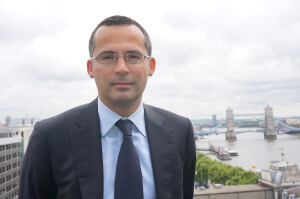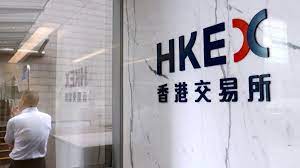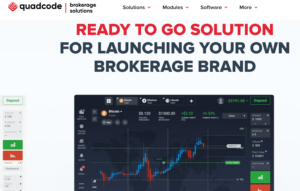One in the eye for the exchange lobby! CME quits Europe and London just a year after massive FX drive!
A victory for the OTC FX industry in London as CME Group admits defeat and ceases to push its exchange-listed FX products into Britain, hence that is one less lobbyist rival for the established and well organized OTC firms in the world’s institutional and interbank FX capital

Today, after almost a year of laboring under the perceived giant burden that the electronic exchange and listed derivatives sector is creating for the OTC derivatives business globally due to its lobbying attempts in favor of creating a difficult business environment for all who do not succumb to exchange traded necessity, there is light at the end of the tunnel.
CME Group, one of Chicago’s largest and most diversified electronic listed derivatives marketplaces, is pulling out of London, and exiting the European market altogether.
This is a highly interesting development, based on many factors, one being that London, the center of global OTC derivatives trading at institutional level, is a bugbear among executives within the listed derivatives establishments around the world.
Indeed, so audible and constant is the buzzing sound made by the bee in the bonnet of the exchange sector’s senior executives, that part of the lobbyist modus operandi recently has been to pressurize mainstream financial markets regulators, including the Financial Conduct Authority (FCA) in Britain to make changes to core business instruments of CFD firms – CFDs being a major part of large OTC FX firms’ product range on the domestic market – in order to curtail their activities via means other than a fair and competitive business environment in order to gain the retail business on exchange.
That is one interesting factor that had concerned a number of seasoned executives in the OTC sector recently, another equally important matter being the massive drive toward the retail FX industry demonstrated by the large exchange firms across the world, CME Group being absolutely at the forefront of the wish to usurp the OTC minnows by the giant whales of State Street and Michigan Avenue.
CME Group’s European operations, based in London, was only established in June 2014, hence its retreat from the entire European market is very unusual bearing in mind the longevity and sheer might that CME Group has in its domestic market, and its gigantic capital base which dwarfs the OTC sector entirely.
Just last year, CME Europe, as the subsidiary is known, began offering 30 FX futures products and a suite of commodities contracts.
The venue also introduced its FX Liquidity Creation Programme (LCP) in June last year, which superseded the company’s Long Term Revenue Share Programme (LTRSP), further indicating CME Group’s intentions in the old country.
Just nine months ago, CME Europe introduced a six month incentive programme to grow liquidity across its FX futures products which was open to any number of participant who could compete for a percentage of a monthly bonus pool, which was initially set at $100,000.
At its inception, CME Group believed that its newly launched derivatives exchange in London would serve what it considered to be growing demand for FX futures, hinting that the ‘increased costs of using the OTC FX market’ would be in its favor.
That is a very politely worded corporate assault on the OTC FX firms of London. What the venue really meant to allude to was that the exchange establishment has had enough of 30 years worth of now large scale OTC derivatives firms taking the retail business and they want it back.
Britain’s highly advanced, publicly listed CFD and spread betting companies have been in existence for the best part of three decades and are bastions of expertise, serving a very loyal and sophisticated domestic audience via high quality proprietary trading systems.
The level of expertise within the senior management of such firms is absolutely there to see and it is fair to say that the flagship companies that provide retail trading environments to discerning customer bases are the large established firms of North America and Britain, those being Hargreaves Lansdown, FXCM, OANDA Corporation, IG Group, CMC Markets, Interactive Brokers and GAIN Capital.
In December last year, just five months after CME Group’s London-based exchange-traded FX European advancement, the Financial Conduct Authority (FCA) issued a notice, stating its proposals to make sweeping changes to the way that CFDs are sold by domestic and overseas OTC FX firms.
Timely? You bet
At that time, FinanceFeeds spoke today to Francois Nembrini, Global Head of Sales & Liquidity Management at AFX Group’s Quantic AM institutional asset management division, who is a highly experienced institutional FX senior executive, having spent 12 years as Managing Director of FXCMPro, FXCM’s institutional division, where he had extensive relationships with banks, central banks, hedge funds, brokerages and investors globally.

Mr. Nembrini believes that the regulatory authorities in countries where the FX industry is populous, those being the United States, Britain, Australia and certain parts of the APAC region have an agenda in which they are setting in place a procedure in order to have the entire OTC FX and OTC derivatives migrated to an exchange model.
“It is quite apparent that the regulators, along with other institutions are setting in place the framework to have the entire non-bank OTC business revamped on exchange” said Mr. Nembrini.
“CME Group is looking at a project whereby they come up with a rolling spot contract which is a direct competitor to OTC derivatives firms” said Mr. Nembrini in December last year.
“This is not a consolidation in my view, it is an attempt to move the non-bank retail FX business globally to a different model. The exchanges have woken up to the fact that a large part of their retail businesses has moved off exchange and they want to get the business back. Scandals in the OTC industry, bankruptcies related to SNB type events and binary options scammers have given ample justifications to exchange lobbyists to argue against the OTC retail industry. In the end who do you think has more clout with the FCA? The LSE or IG markets ? It is obvious who is going to win. ” – Francois Nembrini, Global Head of Sales & Liquidity Management at AFX Group’s QuanticAM
Then there was the acquisition by Deutsche Boerse in July 2015 of FX trading platform 360T for $796 million. Now Deutsche Boerse is embroiled in its fraught merger with the London Stock Exchange, which has been deemed monopolistic by the European Commission, however that will proceed due to the imminent sale of LCH SA, the European division of LSE’s clearing division LCH.Clearnet as a condition of the transaction, whose buyers will be its largest customer.
Hotspot FX, one of the world’s most renowned OTC FX ECNs was bought by BATS Global Markets for $365 million in January 2015. It is also important to look at EUREX’s direction in which by September this year, the venue had extended its listed FX Futures and Options portfolio to include six new currency pairs while the overall minimum block trade sizes was reduced across all currency pairs to further improve hedging opportunities.
At that time, the idea was to increase Deutsche Boerse’s positioning in the provision of pre-trade price transparency in the derivatives area for institutional investors and taking an initial footprint in the FX derivatives space. An investment agreement was signed in December, whereby Deutsche Börse will pay a US dollar amount in the single digit million range.
FinanceFeeds is also aware that this has been a focus for Deutsche Boerse for some time. Back in 2011, Deutsche Boerse took a minority stake in British FX technology solutions provider Digital Vega which was a technology vendor to buyside and sellside firms in the OTC derivatives sector.
Another example of this dynamic is EUREX’s acquisition of the 360T treasury system, with the intention of moving the entire FX structure from an OTC bilateral system into an exchange clearing structure in my view.
There have been some failed attempts by the giants, however, proving that those who understand the market well – IG Group, CMC Markets, Saxo Bank being first class London-based examples – are those who are here to stay. NASDAQ had wanted to launch NASDAQ FX but were unable to do so as they failed to understand the nuances of liquidity provision in an OTC trading environment vs the exchange traded products dynamics, something that multi-product OTC firms understand clearly, as depicted in an interview between FinanceFeeds and Saxo Bank’s Head of API business Lucian Lauerman in London a few months ago.
Ultimately, CME Group’s short lived attempt at taking a place in the FX markets in London has now come to an end, bolstering confidence that when it comes to the institutional heartlands of London, interbank, prime of prime and multi-product OTC business is still the absolute force to be reckoned with.
“While Europe continues to be a critically important and expanding market for CME Group, with average volumes of more than 2.6 million contracts per day from European clients during 2016, our customers have shown that they prefer to access our global products, deep liquidity and greater capital efficiencies through our U.S. infrastructure,” said William Knottenbelt, CME Group Senior Managing Director, International.
Yes. Admission of defeat in sugar coating. Clients do not prefer global products, if they did, and CME Group’s European operations were attractive, they would trade there as it is an electronic and global market place. What they really mean is that this is an expensive, leverage-free and lumbering method of executing trades and is not attractive to a client base of OTC derivatives traders who are loyal to their large and well established OTC brokerages.









